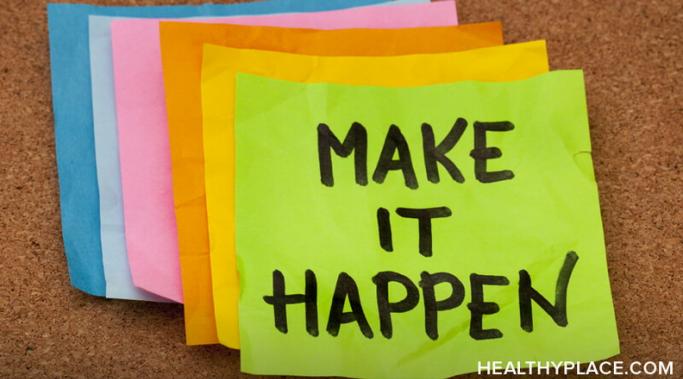Blogs
Schizoaffective disorder and marriage can go together, successfully. My husband Tom and I will celebrate our 10th anniversary in September. That's no small feat, especially when you add schizoaffective disorder into the equation. I think our best secret is patience. Here's how patience helps our marriage stay happy, even though I have schizoaffective disorder.
Exercise, even light exercise, can lower anxiety. Exercise has been shown to affect change in the brain that impacts anxiety immediately as well as over time. If you experience physical limitations that make exercising difficult, you can still move in ways that allow you to reduce anxiety and increase mental health and wellbeing.
Does it feel like everyone can tell you have bipolar disorder? Does it feel like you're carrying a neon sign above your head with your diagnosis on it? Does it feel like as soon as you open your mouth, people can tell that you're "crazy"? If so, I'm pretty sure this actually makes you normal. There's this odd time often right after a bipolar diagnosis where, for some, it feels like everyone can tell you have bipolar disorder.
Social media anxiety is real. Claims of social media being bad for us have long passed into common parlance, but as it turns out, such claims actually have a basis in fact. Research proves that heavy social media usage can wreak havoc on one’s mental health – not only is it linked to anxiety, but also depression, loneliness, paranoia, and even attention-deficit/hyperactivity disorder (ADHD). For those of us already prone to anxiety, such demands we take an active role in regulating our social media usage. Though seemingly difficult, here are some ways to avoid social media anxiety.
#MeToo is far more than just a popular hashtag. #MeToo is a movement that does everything from educate about sexual harassment/assault to drive for societal change. #MeToo is important because it is bigger than one person. I have experience with sexual assault/harassment and as one person, it has been very hard to deal with. I wish #MeToo had been around when it happened to show me that I wasn't alone, educate me about what I needed to know and allowed me to create change for myself. In short, we needed a #MeToo 20 years ago and we need #MeToo today.
I'm a woman with mental illness and being single has been a conscious choice for me for the last two years. I felt that I needed time to get my life on track and grow into the woman I’ve always wanted to be. Growth is never-ending and getting one’s life on track is a process, but there were major issues I wanted to address before dragging someone through a dysfunctional relationship. Now that I’ve addressed some of my major issues, such as mental illness and abandonment, I feel that I’m ready to date and want a fulfilling relationship that results in marriage. As a woman with mental illness, I'm ready to be open to love.
I’ve been thinking about what makes a good borderline personality disorder (BPD) therapist lately. I feel very fortunate for the relationship I’ve built with my therapist while recovering from borderline personality disorder. Therapy hasn’t always been easy, but I’ve been fortunate to be paired up with some really wonderful therapists over the years. Something I've learned is this: not all therapists are equally equipped to work with BPD. Today, I have one of the healthiest, and most fun and dynamic relationships with my therapist I've ever had. I’ve been thinking: what traits does an effective borderline personality disorder therapist possess? What qualities set one BPD therapist apart from another?
Divide up tasks into smaller bits when your to-do list appears overwhelming or impossible. Breaking up large tasks into smaller, more manageable chunks can help you actually get moving on those scary priorities you've been putting off.
You can improve your mood by turning your favorite hobbies into creative projects. It is no secret that creative hobbies such as drawing, coloring, and writing can tame your anxious mind and allow you to express yourself, but what if we took hobbies further by incorporating them into creative projects? Read this article to learn about the benefits of creating projects out of your hobbies and how they improve mood.
I experience social life problems as a man in my 30s. It is hard to create a meaningful social life as an adult under the best of circumstances. It was different as a child or in college, when one was already surrounded by numerous peers, all searching for similar things. At this point in life, meeting new people is hard. For me, as a 30-something single man, it is especially difficult to meet people at the same point in their journeys as I am. Here are some of my social life problems and what I'm doing about them.









